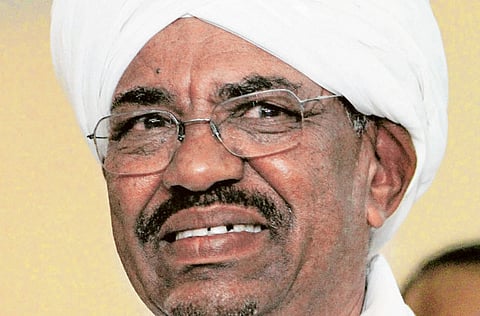Sudan’s fundamental questions
The long-lasting conflict was all about equality

In their first comments for the new austerity plan announced by President Omar Al Bashir, Sudanese officials pointed to the separation of South Sudan in July 2011 as a major reason behind the deficit budget, necessitating austerity measures.
Many would say that the loss of two thirds of the oil production for the benefit of the state of South Sudan is a compelling reason, but that’s exactly what highlights a dynamic relationship between two major elements which have strongly affected the modern history of Sudan from the 1950s until now — “economy” and “the south”.
The conflict with the south started in 1955, a few months before independence in 1956. And the fundamental question raised in this long volatile relationship between north and south was mainly related to two vital issues: The identity of the nation and the state and indirectly, the economy.
So, while the political elite in the north had chosen to face the identity challenge by going to war, the Bill of War against the south became a major element which has affected Sudan’s economy for decades under all the successive regimes. The moderate estimation of the cost of war in three decades was around $1.5 to $3 million (Dh5.5 to Dh11 million) per day, which is $547.5 million to $1 billion per year.
It is necessary to remember here that the challenge in the early decades of the conflict was not to determine whether the north or south should rule Sudan, but to determine whether Sudan would be a civil or religious state. Nevertheless, with the rising cost of the war, Sudan never had the opportunity to set up a real economic growth plan for decades.
For a long time, all those Sudanese who worked hard to solve this conflict by peaceful means on the basis of equality, were stressing on one major fact — “solving the problem of the south is the key to stability in all Sudan”.
History showed many times that when the war escalates in the south, people in the north burden the increasing economic cost, adding to an explosive mixture of motives to the needed spark for revolt. In 1964, and in spite of some economic achievements, the war in South Sudan pushed General Aboud out of the presidency after an uprising sparked by the killing of a university student.
Later on, when Jaffar Nemairi signed in Addis Ababa an agreement with the southern rebels in 1972, Sudan gained stability, but not for long. When Nemairi formed an alliance with Hassan Al Turabi and declared the Sharia laws in September 1983, rebellion broke out again in South Sudan that year and within two years his regime was toppled by a popular uprising in April 1985. Once again, the spark was a protest by university students against rising prices of sugar and other commodities. Nemairi was overthrown within a week.
The long-lasting conflict between North and South Sudan was all about equality. Historically, the people of South Sudan were influenced by two major trends in the long conflict — unionists and those who preferred separation. But one of the major facts in the history of Sudan proved that people of South Sudan would be in favour of a union under democratic regimes in Khartoum, while the calls for separation always mounted whenever a dictatorship went to war against the south or escalated its brutal repression against the opposition in the north. That is why when an elected government rules in Khartoum, one of its main goals is to solve the conflict with the south on an equality basis and by peaceful means.
In 1989, a significant progress in solving the southern question was about to be achieved. The elected cabinet of Al Sadiq Al Mahdi was about to sign a peace agreement with the SPLA, headed by the late Dr John Garang, and issued a new election code. Both the agreement and the new election code responded to long calls and demands of Sudanese opposition for real equality by moving towards real civil state. In that crucial time, Omar Al Bashir and his godfather Hassan Al Turabi launched their military coup on June 30, 1989.
Now, let us wonder: What if this long conflict was solved on an equality base within a democratic civil state? This is not wishful thinking as the opportunity was always there. Furthermore, it was proven that the people of South Sudan were in favour of union once they felt they were treated as first class citizens with all the rights of citizenship.
It is a tale which shows us repeatedly that equality within a civil democratic state is the key to a stable and prosperous Sudan — a fact which dictators never understood.
Mohammad Fadhel is a Bahraini writer and media consultant based in Dubai


